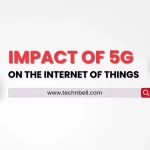AI, IoT, and blockchain are three revolutionary technologies that have the ability to alter numerous sectors and tackle major global challenges. AI, or artificial intelligence, enables robots to execute activities that need human intelligence, such as learning and decision-making. The Internet of Things, or IoT, is a network of interconnected devices that can gather and share data.
Blockchain is a decentralized digital ledger that is used to record transactions across a network of computers. These technologies have already had a considerable impact, but they also raise worries about their prospective influence on jobs.
The Future of AI
Machine learning, which describes a computer or machine’s capacity to enhance its performance on a certain task without being explicitly programmed, is one of the core technologies underlying AI. As they process more data, machine learning algorithms can become more accurate and effective. Machine learning algorithms use data to learn and generate predictions or judgments. Machine learning comes in a variety of forms, such as reinforcement learning, unsupervised learning, and supervised learning.
Natural language processing, speech and picture identification, decision-making, and robotics are just a few of the many uses for AI. Artificial intelligence (AI) is utilized in natural language processing to comprehend and produce human language, enabling the creation of virtual assistants like Apple’s Siri and Amazon’s Alexa.
AI is utilized to evaluate and comprehend visual and aural data in image and speech recognition, enabling the creation of self-driving automobiles and voice-activated personal assistants. AI is used to assess data and generate recommendations or conclusions in decision-making, increasing accuracy and efficiency.
AI is also utilized in robotics to power robots that can work independently or with people to complete jobs. AI has the ability to completely change a variety of markets, and it has already had a big impact on areas like healthcare, banking, and transportation. AI has been utilized in the healthcare industry to evaluate medical images and accurately identify diseases like cancer. AI has been applied to finance to identify fraudulent transactions and improve trading methods.
Self-driving cars, which have the potential to drastically reduce accidents and save lives, are also powered by AI in the field of transportation. As AI has the capacity to automate some processes and maybe replace human labor, there are also concerns regarding the possible effects on employment. However, a lot of specialists are of the opinion that as the labor market changes and AI advances, there will be more options for employment.
Our reliance on artificial intelligence may be necessary for a number of reasons in the future (AI). One reason is that AI has the ability to resolve some of the most important issues facing humanity now, including healthcare, education, and climate change.
As AI has the capacity to automate some processes and maybe replace human labor, there are also concerns regarding the possible effects on employment. However, a lot of specialists are of the opinion that as the labor market changes and AI advances, there will be more options for employment. Our reliance on artificial intelligence may be necessary for a number of reasons in the future (AI).
One reason is that AI has the ability to resolve some of the most important issues facing humanity now, including healthcare, education, and climate change. AI has the potential to tailor education and support independent learning for pupils. It can be applied to develop personalized lesson plans and offer immediate feedback, enhancing the efficacy and efficiency of education.
Another reason AI may be crucial to our future is that it has the ability to boost productivity and efficiency across a wide range of industries. Certain jobs can be automated by AI, giving people more time to work on more complex projects that call for human creativity and judgment. This can boost economic growth and make enterprises more competitive.
Finally, AI has the potential to revolutionize how we work and live by enabling the creation of novel technologies and services that are currently inconceivable. In order to fully grasp AI’s promise and create a better future, society must accept and invest in it.
The Internet of Things
The Internet of Things, sometimes known as IoT, is a network of physical equipment, cars, and other items that are equipped with connection, software, and sensors to collect and exchange data. Smart cities have been made possible by this technology, where everything from traffic lights to trash cans are connected to the internet and can be managed and controlled from a distance.
Additionally, it has made it possible for connected homes to be created, allowing for the automatic control of security, lighting, and appliance systems from a single interface. Additionally, it has facilitated the creation of wearable technology, such as smartwatches and fitness trackers, which let people monitor and advance their fitness and health.
The Transformative Power of Blockchain
Blockchain is a secure, decentralized digital ledger system used to track transactions among a group of computers. Although it was initially developed to serve as the foundational technology for the cryptocurrency Bitcoin, a broad variety of other uses have since been found for it.
Blockchain’s distributed nature—in other words, the fact that it is shared and maintained by a network of computers rather than being controlled by a single entity—is one of its essential characteristics.
Due to the difficulty of changing or tampering with data once it has been recorded on the blockchain, this makes it a secure and transparent method of data storage and sharing. The fact that blockchain uses cryptography to safeguard transactions is another important characteristic. A special code, or “hash,” that is created using the transaction’s data is used to encrypt transactions before they are posted on the blockchain. This hash is subsequently included in the long list of hashes that make up the blockchain, resulting in a secure and essentially unchangeable record.
Public and private blockchains are just two of the different kinds of blockchains. Anyone can access a public blockchain, which is generally used for applications like cryptocurrency where security and transparency are crucial. In applications like supply chain management or financial transactions, where participants are known and trusted, a private blockchain is often employed.
Finance, healthcare, and supply chain management are just a few of the areas that blockchain has the power to disrupt and alter. Blockchain technology has been applied to the financial industry to power cryptocurrencies like Bitcoin, which have garnered global acceptance and have the potential to completely alter how we think about money and payments.
Blockchain technology has been applied to healthcare to safely store and distribute medical records, lowering the possibility of errors and enhancing the effectiveness of therapy. Additionally, blockchain has been applied to supply chain management to trace and confirm the place of origin and the flow of goods, increasing transparency and lowering the possibility of fraud.
In general, blockchain technology has the ability to completely transform how we conduct business and communicate with one another by making transactions quicker, less expensive, and more secure. The introduction of smart contracts is one of the most fascinating trends at the nexus of blockchain, IoT, and AI. In a smart contract, the conditions of the agreement between the buyer and seller are directly encoded into lines of code, making it a self-executing contract.
The provisions of the code and the agreements within are legally binding. Smart contracts have the potential to completely change the way we conduct business by facilitating quicker, less expensive, and more secure transactions.
Conclusion
In conclusion, AI, IoT, and blockchain are three of the most important technological revolutions of this decade, and their influence will only increase over time. These innovations have the ability to address some of the most important issues facing the world today and have already revolutionized a number of industries. These technologies have a promising future, and it will be fascinating to see what new advancements and discoveries they offer in the years to come.



